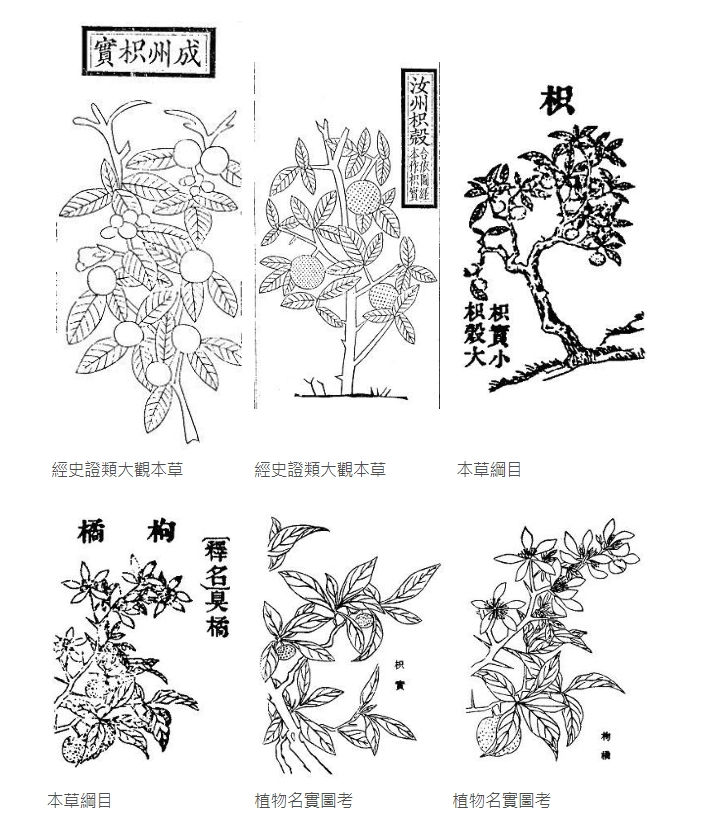Bitter Orange Peel Zhi Qiao: A Key Herb for Digestion and Qi Flow in TCM
- Hongji Medical

- Jun 1, 2025
- 4 min read
Bitter Orange Peel, known as Zhi Qiao in Traditional Chinese Medicine (TCM), is the dried, immature fruit of the Citrus aurantium plant or its cultivated varieties. Renowned for its ability to regulate qi, relieve chest and abdominal fullness, and promote digestion, it holds a significant place in TCM. Its use dates back to ancient times, with a long history of clinical application.

Historical Significance
Bitter Orange Peel was first documented in the Shennong Bencao Jing (The Divine Farmer’s Materia Medica) as a high-grade herb, noted for treating “wind qi, diarrhea, heat, and fullness.” Initially, the related herb Zhi Shi (mature bitter orange fruit) was listed as a middle-grade herb in the same text.
By the Tang and Song Dynasties, records like Mingyi Bielu and Tujing Bencao identified the source as Citrus trifoliata, primarily from areas like Wuzhi County, Henan. Over time, the source shifted to Citrus aurantium, with production moving to regions like Hunan, Jiangxi, and Sichuan.
In the Ming Dynasty, Li Shizhen’s Bencao Gangmu detailed Zhi Qiao’s appearance, harvest, and effects, describing it as effective for “breaking qi, reducing accumulation, and clearing the intestines.” Later texts like Bencao Beiyao and Bencao Zhengyi further refined its applications, expanding its clinical use.

Properties of Bitter Orange Peel, Zhi Qiao
Nature and Meridian Affinity
Taste: Bitter, pungent, sour
Nature: Slightly warm
Meridians: Spleen, Stomach, Large Intestine
Key Components
Bitter Orange Peel contains volatile oils and alkaloids, contributing to its pharmacological effects.
Main Functions
Regulates qi and relieves fullness: Eases chest and abdominal discomfort caused by qi stagnation.
Promotes digestion and relieves stagnation: Aids in breaking down food accumulation and improving digestion.
Breaks qi and eliminates fullness: Addresses bloating and constipation due to stagnation.
Supports gastric prolapse: Helps lift the stomach to alleviate digestive issues.
Other effects: Enhances gastrointestinal motility, increases gastric secretion, and relaxes bronchial smooth muscles.

Clinical Applications
Bitter Orange Peel, Zhi Qiao is widely used in TCM to treat the following conditions:
Regulating Qi and Relieving Fullness: It alleviates chest or abdominal fullness, bloating, belching, or vomiting caused by spleen and stomach qi stagnation.
Promoting Digestion and Relieving Stagnation: It helps with food accumulation, abdominal pain, or constipation due to poor digestion.
Breaking Qi and Eliminating Fullness: It treats chest tightness or constipation caused by phlegm or food stagnation.
Supporting Gastric Prolapse: It lifts the stomach to address indigestion or poor appetite caused by gastric prolapse.
Bitter Orange Peel in Classic TCM Formulas
Bitter Orange Peel is often combined with other herbs in TCM formulas to enhance its effects. Here are some notable examples:
Zhi Shi Dao Zhi Wan (Immature Bitter Orange Pill to Guide Out Stagnation): Contains Zhi Shi, Rhubarb, Scutellaria, Coptis, and others. It clears heat, reduces stagnation, and promotes digestion, treating abdominal pain, constipation, or dysentery due to food accumulation and damp-heat.
Hou Po Qi Wu Tang (Magnolia Bark Seven Substances Decoction): Includes Magnolia Bark, Licorice, Rhubarb, Cinnamon Twig, and Zhi Ke. It warms the middle, disperses cold, and regulates qi, treating cold-induced abdominal pain or constipation.
Ban Xia Xie Xin Tang (Pinellia Decoction to Drain the Epigastrium): Combines Pinellia, Scutellaria, Ginger, and Zhi Shi. It harmonizes the stomach and relieves fullness, treating nausea, vomiting, or diarrhea due to spleen and stomach disharmony.
Comparison with Similar Herbs
Bitter Orange Peel shares some functions with other TCM herbs, but each has distinct strengths:
Zhi Shi (Mature Bitter Orange Fruit): Stronger in breaking qi and treating severe stagnation, used for more intense accumulation.
Costus Root (Mu Xiang): Weaker in regulating qi but better for pain relief and spleen support.
Magnolia Bark (Hou Po): Stronger in warming the middle and resolving dampness, focusing on spleen and stomach damp stagnation.
Modern Applications and Research
Modern studies have validated Bitter Orange Peel’s traditional uses and revealed additional benefits:
Enhances Gastrointestinal Motility: Increases smooth muscle contractions to aid digestion.
Boosts Gastric Secretion: Improves digestive capacity by promoting gastric juice production.
Relaxes Bronchial Smooth Muscles: Helps relieve asthma symptoms.
Anti-inflammatory: Reduces inflammation through its active components.
In modern medicine, Bitter Orange Peel is used for digestive disorders like chronic gastritis or gastric prolapse and respiratory conditions like bronchial asthma, showcasing its versatility.
Precautions for Use
Dosage: Typically 3–9 grams, adjusted based on the condition and medical advice.
Contraindications: Use cautiously in pregnant women or those with qi deficiency or weak constitutions.
Incompatibilities: Avoid combining with Licorice (Licorice counteracts Zhi Qiao).
Additional Caution: Not suitable for those with qi deficiency, no food stagnation, bloating, or spleen and stomach weakness.
Conclusion
Bitter Orange Peel is a vital herb in TCM, valued for its ability to regulate qi, relieve fullness, promote digestion, and support gastric health. Its wide-ranging applications, supported by historical knowledge and modern research, make it a powerful remedy. Always consult a qualified practitioner to ensure safe and effective use, considering its properties, indications, and precautions. As research continues, Bitter Orange Peel’s potential in modern medicine is likely to expand further.




